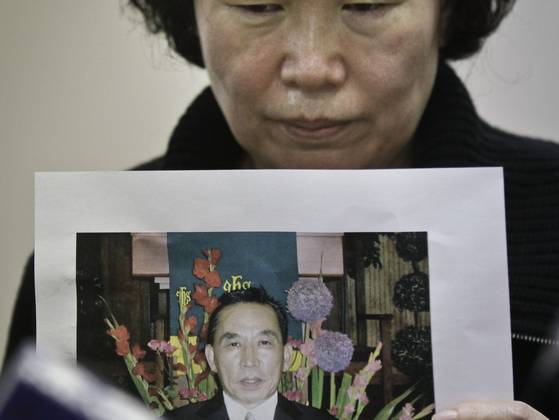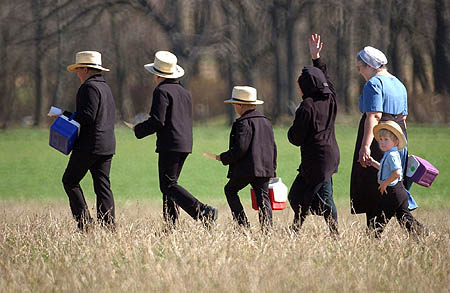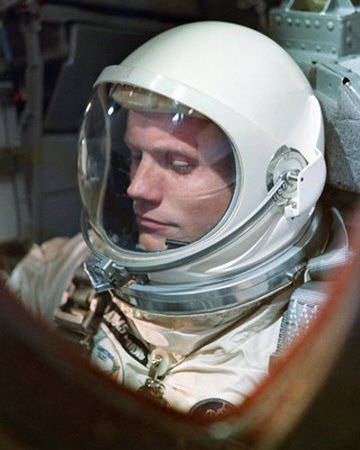We’re just about done thinking about 2012, but not quite.
As always, there were many small heroes this year, but Groundbreakers? Galvinizers? Healers? Those who stood before us with clear eyes and quiet confidence: there were almost none of them. Perhaps these men and women will come out of their private worlds when we’re closer to bottom, when our need will be great enough to recognize & welcome them & finally decide to stand behind them. This year, leaders like this were leaving us, not striding onto the stage.
Neil Armstrong left the stage he was never really comfortable on for the last time this past August. My post about him was one of the year’s most read, perhaps because it’s not just moths that are drawn to the brightest lights.
Surely, some of it was that his life recalled a different America when we were able to pull together to accomplish something amazing, whereas today we can’t even agree to come together and make sense. But it’s also about a man who took us with him on a great adventure, didn’t get in the way when we got there, and then gave everybody else the credit when it exceeded our dreams.

One way to take the measure of Neil Armstrong—in all his Mid-Western matter-of-factness—is to eavesdrop on an interview he gave in 2001 as part of the Johnson Space Center’s Oral History project. (His interlocutors are historians Stephen Ambrose and Douglas Brinkley.) His thinking is also a good way to clear our heads for another muddled year ahead.
On who gets to be the first man on the moon:
AMBROSE: It is part of the popular perception, I guess, and it appears in some of the literature that the other astronauts have put out, that there was a lot of jockeying for position.
ARMSTRONG: Yes.. . The goals, I thought, were important to not just the United States, but to society in general. I would have been happy doing anything they told me to do. It’s probably true that I was less inclined to be concerned about just what job I had than some were. I think they’re all different people, they all had different kinds of views on that subject. It wasn’t as obvious to me as some of the stories I’ve read have portrayed it. (49)
Foundation instincts: steady, confident & clear:
AMBROSE: But you made a decision [after serious technical problems] and you got back to Earth. I spend a lot of my life talking to men who have made big decisions, and in this case your life and others’ were at stake…
ARMSTRONG: Well, I can’t make too much of it. I think generally you try to keep going as long as you safely can and try to save the flight, the objectives, and try to put everything back together. At some point you just have to make the decision that, “I can’t take the risk of pursuing my goal further, because I have to go back to the foundation instincts”, which is save your craft, save the folks, get back home, and be disappointed that you had to leave some of your goals behind. (55)
The results also come from:
ARMSTRONG: I think it predominantly is experience over training. Training certainly helps, but having been in flying machines for many years and faced a lot of difficulty, [pilots] become accustomed to being required to solve problems as they arise …, and particularly test pilots who get a higher percentage of things going wrong than normal pilots. And I’m not saying that we did it perfectly in every case; I’m sure we didn’t. But the experience that we’d had in flying a variety of different kind of machines in difficult circumstances certainly enhances your ability to look at a situation, … analyze it and determine what your probable best course is and how much latitude you have to deviate from that best course. It’s not an easy subject to describe adequately, but it seems to have worked. (57)
The important things: the task at hand, the shoulders you’re standing on, and pride in your work:
BRINKLEY: …Apollo 11…was perhaps the most watched event in the history of….the world. [Y]ou didn’t treat it differently mentally at all, [only] as you would…one of your previous missions?
ARMSTRONG: I was certainly aware that this was a culmination of the work of 300,000 or 400,000 people over a decade and that the nation’s hopes and outward appearance largely rested on how the results came out. With those pressures, it seemed the most important thing to do was focus on our job as best we were able to and try to allow nothing to distract us from doing the very best job we could. And, you know, I have no complaints about the way my colleagues were able to step up to that.
AMBROSE: Let me interject here that you share a quality with General Eisenhower. When reporters would come to him during the war and want to get a story, he would always say, “Go talk to [General Omar N.] Bradley. Go talk to [General George S.] Patton [Jr.]. Go talk to a sergeant. That’s where the real story is. This is a team effort,” and he would never allow it to concentrate on him…And you just spoke about the hundreds of thousands of people that have been working for so long to make this happen, and I invite you to make a reflection on the team nature of the Apollo 11 mission.
ARMSTRONG: Each of the components of our hardware were designed to certain reliability specifications, and far the majority, to my recollection, had a reliability requirement of 0.99996, which means that you have four failures in 100,000 operations. I’ve been told that if every component met its reliability specifications precisely, that a typical Apollo flight would have about [1,000] separate identifiable failures. In fact, we had more like 150 failures per flight, [substantially] better than statistical methods would tell you that you might have.
I can only attribute that to the fact that every guy in the project, every guy at the bench building something, every assembler, every inspector, every guy that’s setting up the tests, cranking the torque wrench, and so on, is saying, man or woman, “If anything goes wrong here, it’s not going to be my fault, because my part is going to be better than I have to make it.” And when you have hundreds of thousands of people all doing their job a little better than they have to, you get an improvement in performance. And that’s the only reason we could have pulled this whole thing off. (78-79)
We give heroes our best because they take us with them to a whole new world.
Godspeed, Neil Armstrong.




